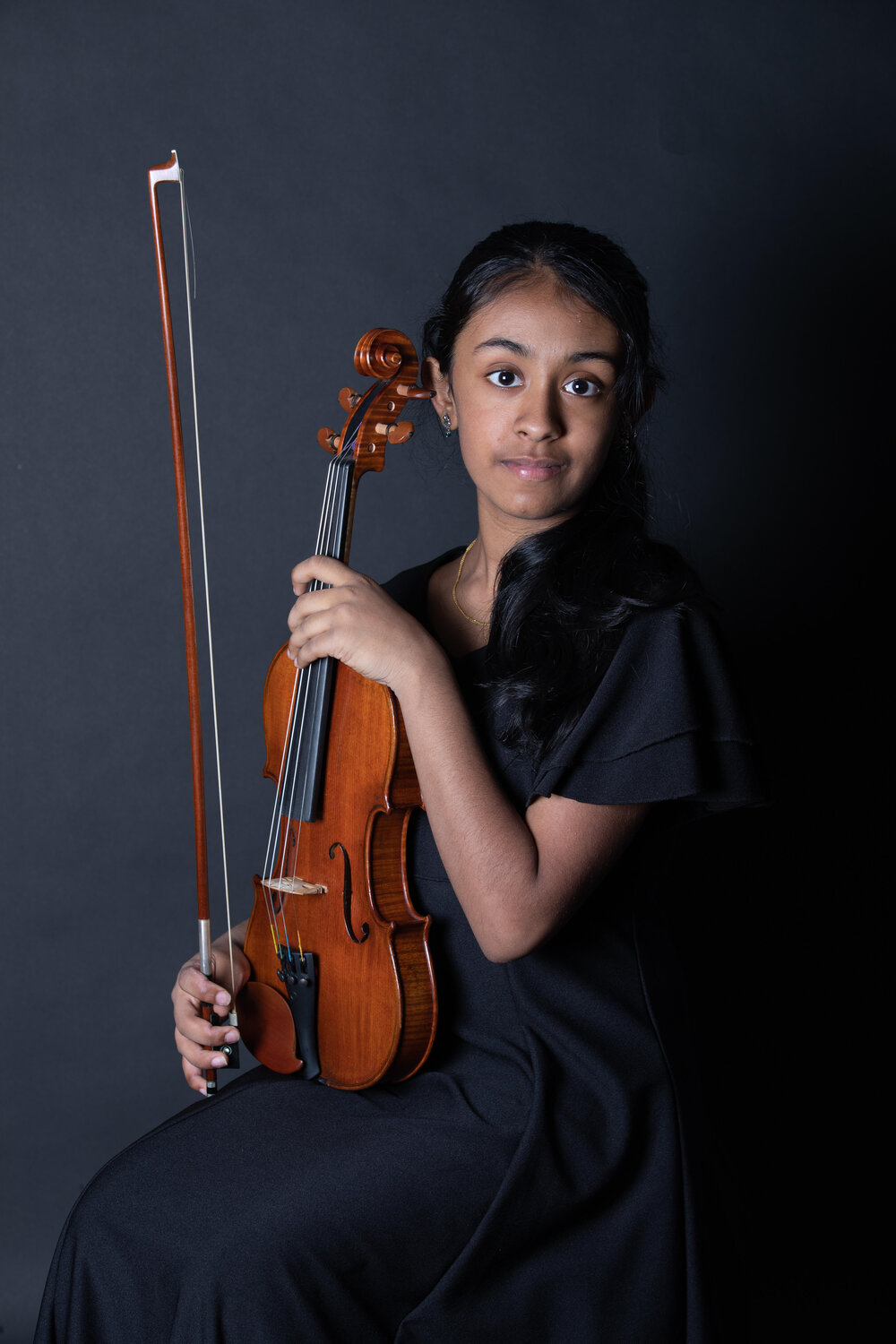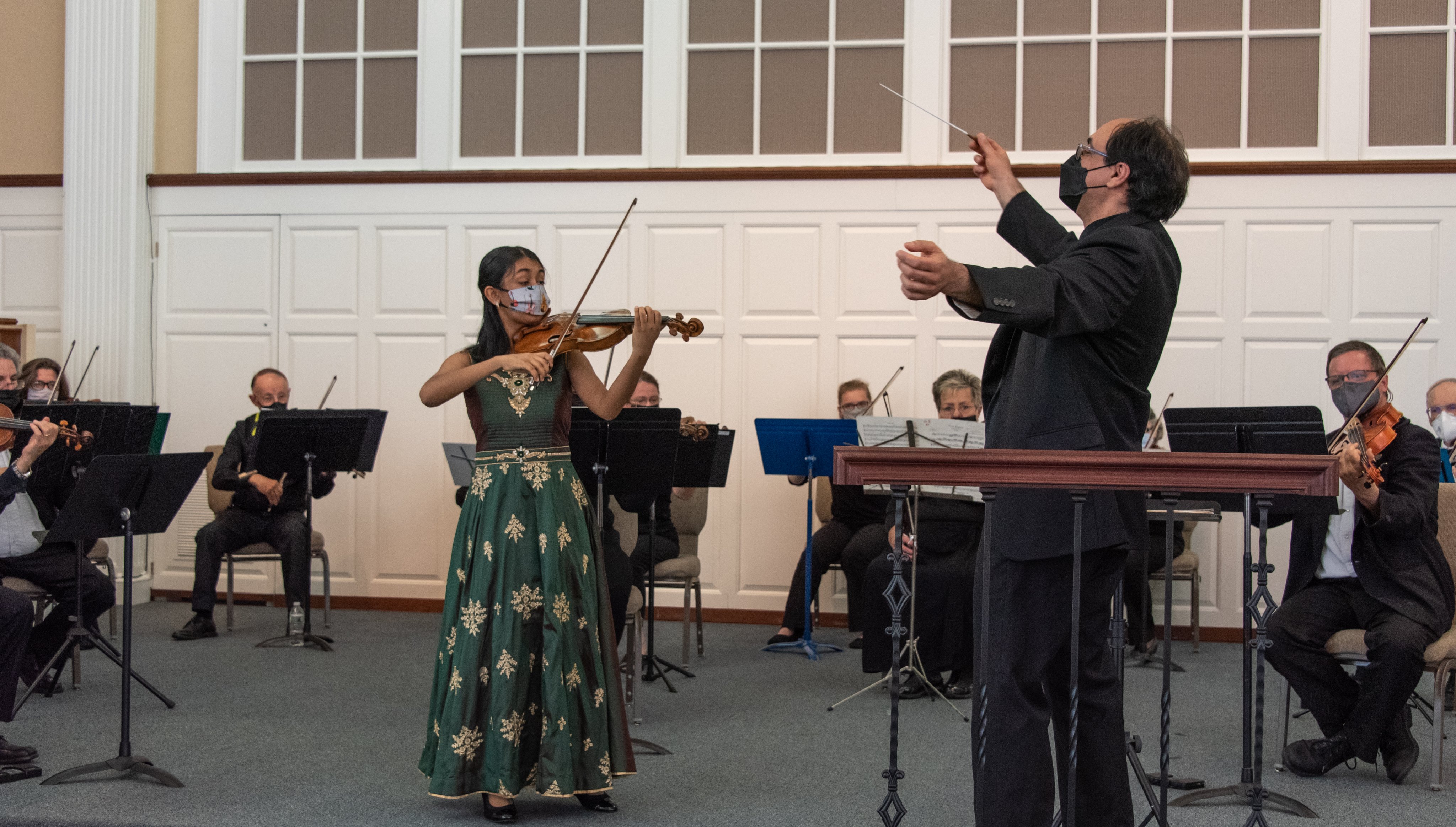(July 1, 2023) In a harmonious convergence of diplomacy and artistic brilliance, the corridors of power at the White House resonated with the enchanting melodies of 17-year-old Vibha Janakiraman, a young Indian American prodigious young violinist. Amidst the distinguished guests and the grandeur of a state dinner hosted by US President Joe Biden, it was the sublime talent of this 2023 US Presidential Scholar in the Arts that captivated all who were present.

The youngster, who has graced illustrious stages with her mesmerising performances for years, masterfully rendered Kreisler’s enchanting Recitativo and Scherzo at the White House, casting an ethereal spell upon the audience gathered for this momentous occasion. Speaking to the media after her performance, the violinist said, “It was such a privilege to play at the White House and to be a representation of Indian Americans everywhere! I had the most inspiring view: the Jefferson Memorial directly in front of me and the Washington Monument off to the side. I tried to soak in every moment of that experience, using silences between phrases to allow the beautiful location to be a part of my music-making. I will treasure this forever, and I am so grateful to the people and mentors that made this possible.”
One among that audience was the First Lady of the USA, Jill Biden, who took to Twitter to praise the grace and finesse of this young virtuoso. Sharing a photograph of Vibha, Jill Biden tweeted, “Vibha Janakiraman, a youth violinist and 2023 U.S. Presidential Scholar in the Arts kicked off the Official State Visit for the Republic of India today. Vibha honored her cultural connection to Western classical and South Indian classical music for guests at the White House (sic).”
Melodic majesty
Inspired by her grandfather – who is also a prominent Carnatic classical musician and stage performer – Vibha embarked on her musical odyssey at the tender age of six, when she started learning violin and Carnatic music under his guidance. However, growing up in West Chester, Pennsylvania, the youngster was heavily influenced by Western classical music as well.
“I always liked music, and grew up surrounded by music as my grandfather is a professional South Indian musician and musicologist,” the violinist said during an interview, adding, “When I was about six, my parents decided that it would be good for me to learn a musical instrument, and violin was the most well-known instrument at the time for me. So, we went to the Music School of Delaware, and signed me up for the violin classes there. Since the first class, the violin has been a core part of my life. I feel that it is not the instrument that makes as much of a difference to me as just being able to play music.”
The violinist, who recently graduated from the Pennsylvania Leadership Charter School, is now gearing up to embark on her bachelor’s degree journey at Juilliard School’s pre-college division this year, under the tutelage of the distinguished Catherine Cho and the legendary Itzhak Perlman. The Global Indian currently performs on a loaned 1855 Jean Baptiste Vuillaume violin, graciously provided by the Tarisio Trust.
It’s a musical world…
An academic genius, who loves to study mathematics and Sanskrit, the young violinist finds music in every aspect of her life. “Even when I am not playing the violin, I am usually doing something musical or listening to music,” the violinist shared, “I think it is because of my Carnatic music training, I am drawn to the Sanskrit language. I find it intellectually stimulating and quite beautiful. I feel it’s a great way for me to connect with my culture, but also studying a language like Sanskrit, which has so many intricacies is also just very interesting.”


Vibha performing at the White House
The violinist, who has on the Estella Hillersohn 2018 scholarship and the 2019 Philadelphia Young Artists Orchestra competition, has previously played with the Gray Charitable Trust Advanced Scholarship Piano Trio at the Settlement School and has performed as a soloist with several orchestras in the Philadelphia region. In her message to young musicians across the globe, the youngster said, “I think it is important that one finds which aspects of music, or which medium resonates with you the most, and what brings you the most joy. Use that as a reason to always remember why you do what you do. Because when you are playing an instrument there will always be several periods when things aren’t going the way you want or you might feel like your progress isn’t how you planned it to be. So, for those days, it is helpful to know what I love about music and why I am pursuing it.”





Vibha performed well! Congratulations!